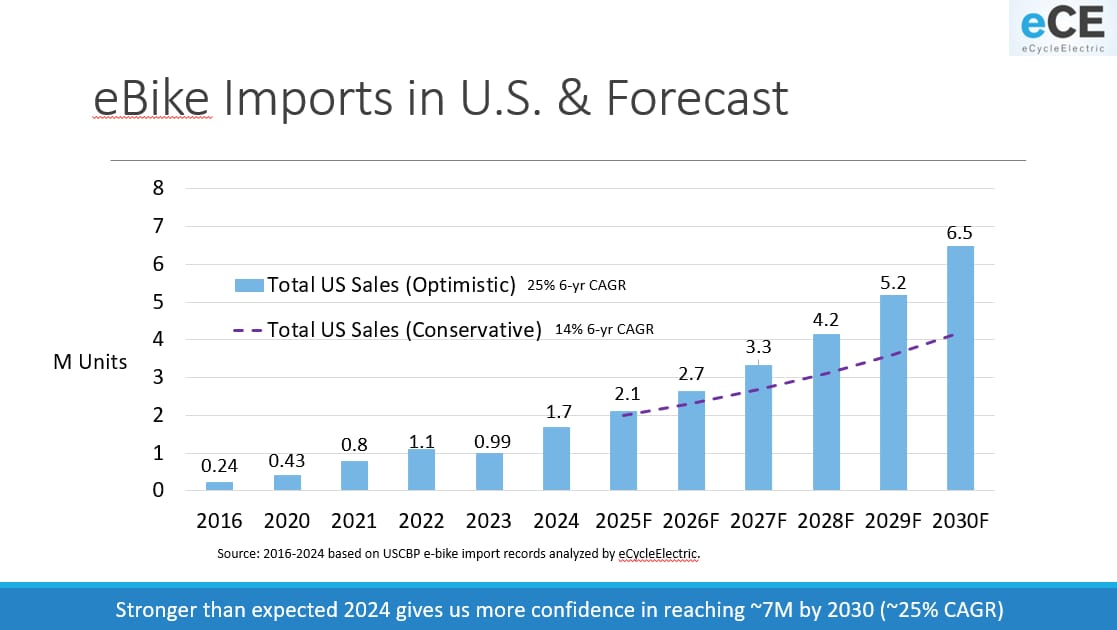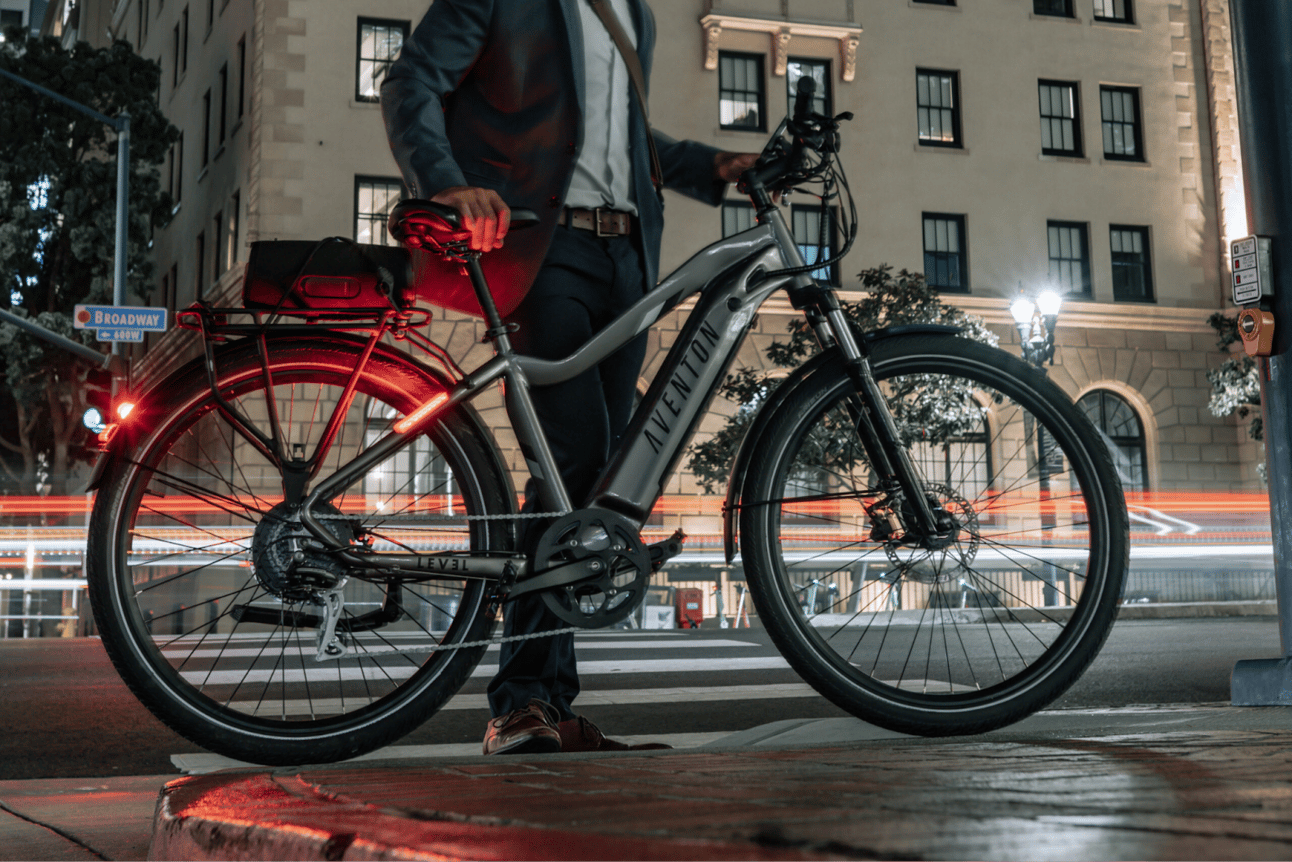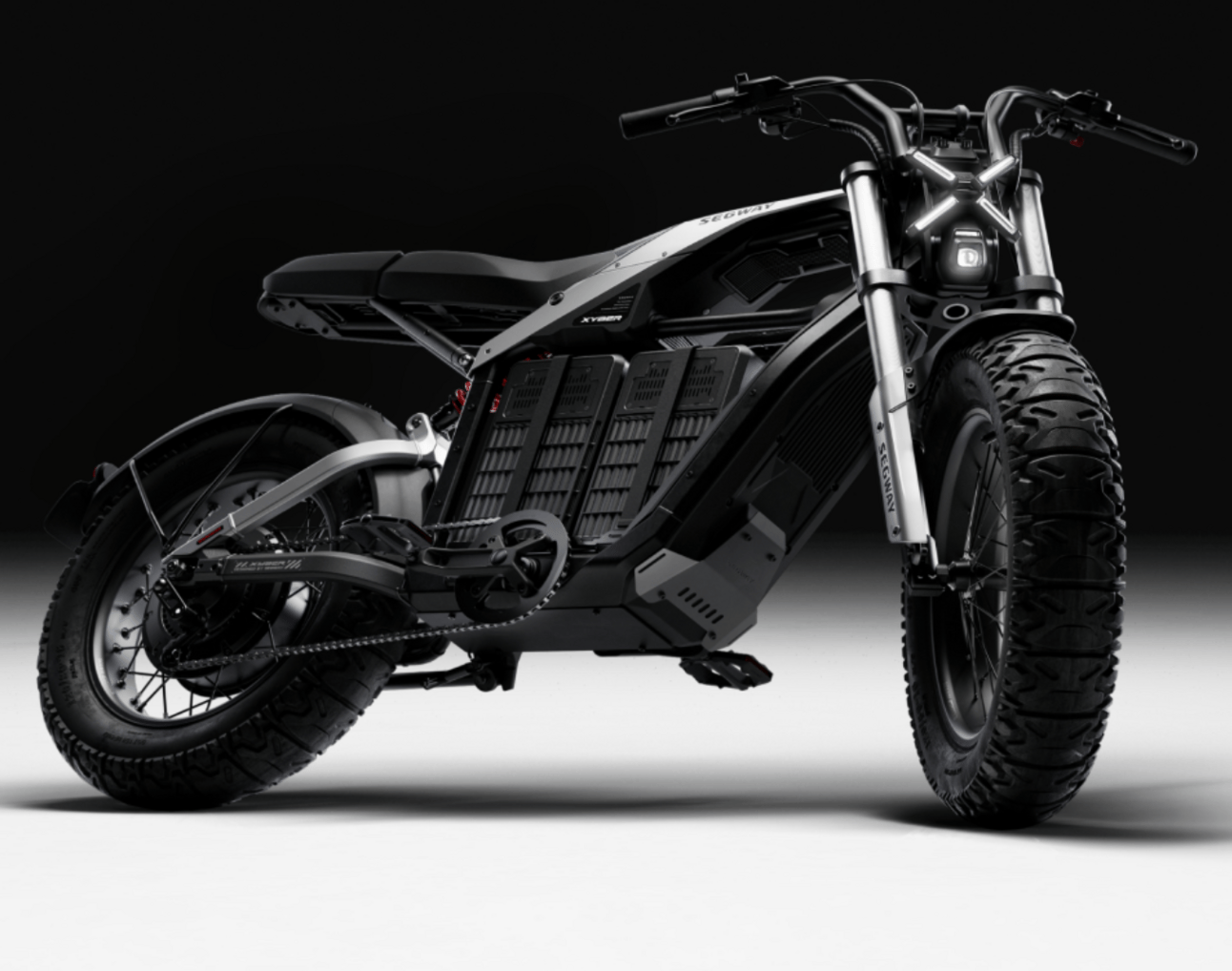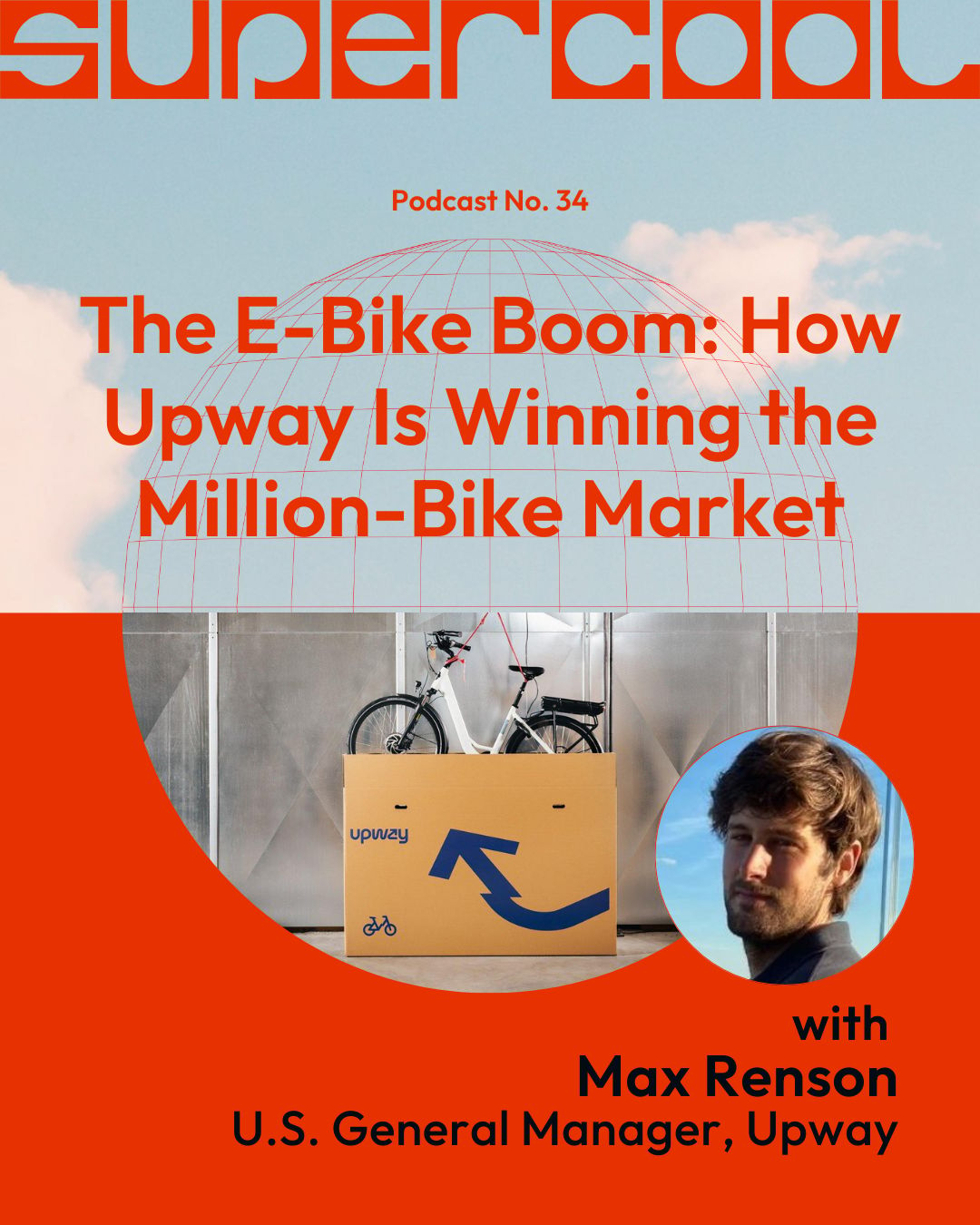- Supercool
- Posts
- 🌐 The E-Bike Boom: How Upway Is Winning the Million-Bike Market
🌐 The E-Bike Boom: How Upway Is Winning the Million-Bike Market
Upway is creating the infrastructure the e-bike industry didn’t know it needed.
The E-Bike Boom No One’s Talking About—And the Company Powering It
There’s a silent revolution happening on city streets and forest trails. It's electric bikes—e-bikes—and it's moving swiftly.
Electric vehicles grab all the headlines, and while 1.3 million electric cars were purchased in the U.S. in 2024, sales of e-bikes are an even bigger story. Americans are estimated to have purchased 1.7 million last year.

Source: eCycleElectric
Why? They’re fun, practical, and zero-emission. They’re convenient for commutes and errands and a blast for recreation.
Digital-first brands like Lectric and Aventon are capturing new audiences. Established companies like Trek and Specialized are in the market.

Brands like Aventon make popular commuter e-bikes.
Even Segway, once purveyors of a two-wheeled electric dweeb machine and a brand long thought to have expired, is back with cyber-punk e-bikes that would be right at home in Mad Max Furiosa.

Segway’s aptly named e-bike: Xyber.
E-bikes represent one of the most interesting, risk-taking, design-forward industries in transportation, and not just clean transportation.
But there’s been a missing piece in the e-bike boom that promises to unlock even more growth: resale. Unlike cars, which have a thriving secondhand market, used e-bikes haven’t had an easy way to reach new owners.
That’s where Upway steps in, a company moving at Uber speed to fix that.
Upway is creating the infrastructure the e-bike industry didn’t know it needed—but is now coming to depend on. Think of it as Carvana for e-bikes—but with an even bigger business case.
Upway Is More Than a Marketplace—It’s an E-Bike Engine
Buying a used e-bike isn’t hard. But buying one with confidence? Even under the best circumstances, it feels like rolling the dice when it comes to battery life and performance. Upway is making secondhand e-bikes trusted and affordable by solving the biggest friction points for consumers and the industry alike.
✅ For Riders: Every Upway e-bike has a one-year warranty—unheard of in the used market. Bikes are delivered to a customer’s doorstep nearly fully assembled—just screw on the pedals and straighten the handlebars. Plus, returns are easy. That creates peace of mind, especially for first-time buyers.
✅ For the Industry: Upway is the re-commerce engine behind the biggest e-bike brands. If you return an e-bike to a digital-first retailer like Aventon or Rad Power Bikes, Upway handles it. The company’s white-label return system provides the shipping label. It sends the bike to an Upway center for processing and resale, which also reduces friction for new bike sales—because customers are more likely to buy when they know they can sell or return their bike easily.
✅ For the Planet: Upway is building a true circular economy for e-bikes, keeping high-quality bikes on the road and making ownership accessible to wider audiences with prices up to 60% off original retail.
More e-bikes replacing short car trips? That’s a win for everyone.
Speed Is the Secret to Success
Resale businesses live or die by how fast they move inventory. Every day a bike sits unsold, it loses value. Upway’s competitive edge? Speed.
The company founders and leadership team hail from Uber. They understand how to scale logistics, optimize pricing, and create a frictionless user experience that makes it easy for consumers to say “Yes.”
Just like Uber revolutionized ride-hailing, Upway is bringing that same operational excellence to e-bike resale.
Just-in-time logistics move bikes fast from seller to buyer.
Real-time pricing algorithms ensure bikes sell quickly without losing value.
Fulfillment centers across Europe and the U.S. make delivery efficient.
That’s how Upway went from launching in France in 2021 to expanding across Belgium, Germany, the Netherlands, Luxembourg, Switzerland, and the United States in just four years. This isn’t just good execution—it’s elite execution.

An Upway UpCenter with used e-bikes ready for shipping.
Why This Matters for E-Bike Adoption
For e-bikes to go fully mainstream, buyers need to know they can resell when they’re ready to upgrade. They need stable pricing. And they need a frictionless way to enter the market without overpaying.
Upway is making that possible.
A trusted, structured resale market fuels new e-bike sales because it keeps residual values strong, gives customers confidence, and supports a circular economy that makes e-bikes far more sustainable as a category.
Without Upway, the industry might have eventually figured all this out. But Upway isn’t waiting. They’re building the system now—and scaling it at speed.
The Takeaway
🚲 E-bikes are booming, and resale was the missing link.
♻️ Upway is making secondhand e-bikes mainstream.
⚡ A strong resale market benefits riders, bike shops, brands, and the planet.
🌍 European expertise gives Upway an edge in the growing U.S. market.
🚀 Built by Uber veterans, Upway is executing at speed.
This week on the Supercool podcast, we speak with Max Renson, Upway’s U.S. General Manager.
Before Upway, Max spent over six years at Uber, where he managed Uber Eats operations for the New York tri-state area, one of the company’s most complex and high-volume markets.
Max takes us deep inside Upway’s operations to explore the e-bike boom that is changing how we move and how Upway will continue to ensure that nothing slows them down.
Listen to this podcast episode on Apple, Spotify, YouTube, and all other platforms.

↓
Stat of the Week: 72%
That’s how fast the U.S. e-bike market accelerated in 2024, growing from 990,000 units sold in 2023 to 1.7 million in 2024.
Quote of the Week:
"In some countries, e-bike adoption has been like the smartphone. If you walk the streets of Paris or Berlin, it’s everywhere—just like when everyone suddenly had an iPhone in their hands."
- Max Renson, U.S. General Manager of Upway
↓
Earlier this week, I joined Molly Wood to tape an episode for her podcast Everybody in the Pool. She asked me a big question:
Is the march of clean energy technology inevitable?
The short answer? Yes.
Clean energy solutions are becoming so affordable and powerful that, eventually, they will disrupt nearly everything. We will live in a zero-carbon world one day.
But the real question isn’t if—it’s when.
As I’ve covered in this newsletter before, the key to a low-carbon future isn’t just more technology—it’s faster adoption of what already works. Innovation is great and welcome. But adoption is the missing link.
The companies and cities that get this right don’t just cut emissions; they build massive businesses, world-class buildings, and better places to live.
A few examples:
Budderfly: We Make Them An Offer They Can’t Refuse
If Al Subbloie weren’t hellbent on saving the planet, you’d think he was running a Mob operation. His company, Budderfly, just made Fast Company’s 2025 list of The World’s Most Innovative Companies for its no-money-down energy-efficiency upgrades for fast food chains like Taco Bell, McDonald’s, KFC, and Popeyes.
Budderfly removes every barrier to adoption—paying the upfront costs for energy upgrades and sharing in the savings. The result? One of the fastest-growing clean energy businesses in America.
Al shares Budderfly’s business model on Supercol Episode 24.
Eric Corey Freed: We Stopped Asking for Permission
Eric Corey Freed has been designing green buildings since the 1900s—his words, not mine. Author of Green Building for Dummies, he spent years advocating for sustainable design. Then came his a-ha moment:
Don’t wait for the client to ask for a green building. Just give it to them.
Why? Because green buildings are simply better. They’re healthier, more calming, and proven catalysts for human achievement. In the hands of CannonDesign—one of the largest architecture firms in the world, where Eric now leads sustainability—they’re also breathtaking.
That philosophy just earned CannonDesign the title of 2024 Planet Positive Firm of the Year from Metropolis Magazine.
Eric shares his playbook for green building adoption on Supercool episode 30.

California Institute of Technology, Resnick Sustainability Center, designed by CannonDesign
City Thread: We Got Buy-In From The People You’d Least Expect
Nearly everyone wants more bike lanes. Safe, protected, and connected ones that make it easy, convenient, and fun to cruise a city on two wheels.
But wanting them doesn’t mean we get them. Even when city leaders issue proclamations and allocate budgets, what should take months often drags on for years—sometimes decades.
Kyle Wagenschutz knew it didn’t have to be that way. His first test? Getting Memphis off Bicycling Magazine’s list of Worst Cities to Bike—a title it held for two years straight.
He did it. Along the way, he learned some counterintuitive lessons, like:
Stop wasting time convincing bike riders to support you. Get the other guys, the car drivers, to back your bike lane plans. Do that, you win.
Kyle teamed up with People For Bikes to lead The Final Mile Project, a challenge to see if five cities—Austin, Denver, New Orleans, Pittsburg, and Providence—could collectively build hundreds of miles of bike planes in months, not decades.
The results? 335 miles of bike lanes. Completed in just 24 months.
Through City Threads, Kyle is helping more cities scale up modern bike infrastructure—at scale and speed.
Kyle shares his playbook for accelerating clean urban mobility on Supercool episode 10.
↓
Not yet subscribed to Supercool?
Click the button below for weekly updates on real-world climate solutions that cut carbon, boost the bottom line, and improve modern life.
🌐